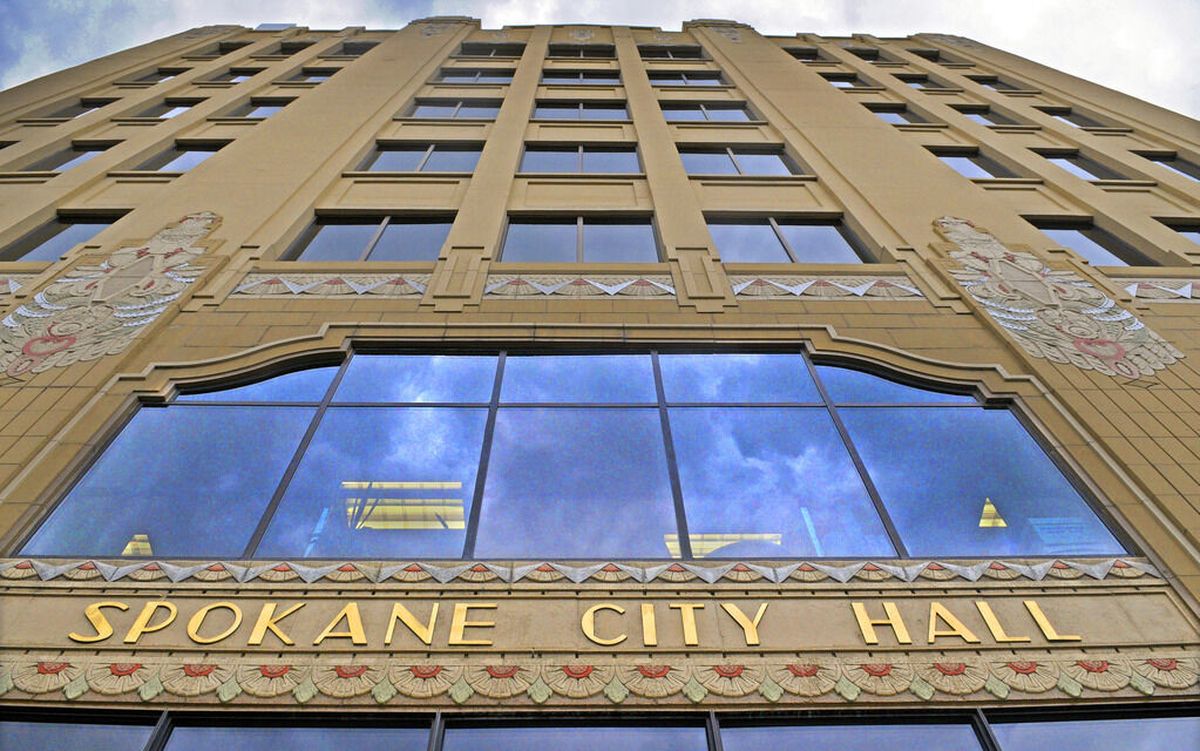
Looking to apply for rental assistance in the city of Spokane?
Check your address. Then, check your landlord’s.
The city is restricting access to the rental assistance it is doling out through its portion of funding from the federal Coronavirus Aid, Relief, and Economic Security (CARES) Act.
In order to qualify for help, a tenant’s landlord must live in Spokane or have a “principal place of business in Spokane.”
The Tenants Union of Washington State quickly cried foul when it learned of the city’s restrictions, noting that many struggling tenants rent apartments in Spokane that are owned by out-of-city or out-of-state landlords.
“I am embarrassed to put our resources on our webpage; they make no sense and make it nearly impossible for vulnerable and underserved tenants to access,” Terri Anderson, interim executive director of the tenants union, wrote in an email to City Council President Breean Beggs this week.
The City Council tapped Catholic Charities and the Spokane Workforce Council last month to administer the rental and housing assistance programs designed to help those hurt by the economic fallout caused by the coronavirus.
Tenants who have lost income due to COVID-19 currently have layers of protection at the state and federal level.
Gov. Jay Inslee’s moratorium on evictions lasts through Oct. 15, while the Centers for Disease Control and Prevention on Tuesday banned evictions for nonpayment of rent through December.
But the relief is temporary.
Tenants can still accrue back rent, they just can’t be evicted for not paying it – for now.
The rental and housing assistance programs are meant to help tenants from falling too far behind.
But Anderson noted that many tenants are unsure where their landlord lives. He said the number of local renters in need of help is in the thousands.
“Most cities consider the home that the tenant lives in as the landlord’s place of business, and their residency is not considered,” Anderson wrote. “Rental assistance is designed to help Spokane renters to stabilize housing and not Spokane landlords as a financial bail out.”
The goal of the program, according to Beggs, was to support local tenants and local landlords who provide them with affordable housing. But the same panel of city officials, including Beggs, that approved the CARES Act recipients could reconsider the restrictions, he acknowledged.
“We are waiting for the initial data back from our vendors to see if the restrictions are getting in the way of fully deploying those funds,” Beggs said.
Under the city’s guidelines, the CARES Act dollars are paid directly to a landlord, covering up to four months of missed rent between April and Oct. 1. The assistance covers 80% of the unpaid rent; the landlord must forgive the remainder.
In return, the landlord waives any late fees and agrees not to evict the tenant for the next six months except in an emergency.
For any months between April and October not covered by the rental assistance payment, the landlord must provide at least two months to pay back every one month of missed rent.
The tenant must earn no more than 80% of the area median income and be suffering financial hardship due to COVID-19.
Beggs noted that the city has also funded other forms of rental assistance that are less restrictive, including its tenant-based rental assistance program, which is federally funded by the Department of Housing and Urban Development.
A single nonprofit can administer several rental assistance programs, each with a different funding source and different restrictions.
The Spokane Workforce Council, which helps operate the Spokane Resource Center, administers rental assistance on the city’s behalf from both the tenant-based rental assistance program and the CARES Act program.
It funnels an applicant into one or the other depending on their eligibility, according to CEO Mark Mattke.
If the tenant makes between 60% and 80% of the area median income, for example, they might qualify for assistance from the city’s CARES Act program but would earn too much to be eligible for the city’s HUD-funded program.
Mattke said he understands the city’s desire to keep CARES Act money local by restricting payments to local landlords, but “that’s something that we’d want to work through and make sure we can make this available to as many residents of Spokane as possible.”
The Workforce Council staff is currently reviewing rental assistance applications for CARES Act funds and will begin writing checks at the end of the week, according to Mattke.
Shannon Boniface, director of St. Margaret’s Shelter at Catholic Charities, said the restriction has not yet been an issue. The city’s CARES Act funding is not the only money the nonprofit’s homelessness diversion program receives, and it also offers mediation between landlords and tenants, Boniface said.
“If they don’t fit those parameters, then we’re working with them to see how we meet their needs in a different way,” Boniface said.
While the diversion program can’t help every person through its doors, Boniface said “we get creative, and we’ve been pretty effective historically.”
Any changes will have to be made soon. The city’s deadline for spending its CARES Act dollars is Oct. 31.
Those in need of rental assistance can call Catholic Charities at (509) 325-5005 to schedule a telephone appointment or the Spokane Resource Center at (509) 867-8188.
"assistance" - Google News
September 03, 2020 at 02:18PM
https://ift.tt/3lPyrIG
For CARES Act rental assistance, both tenant and landlord must live in Spokane - The Spokesman-Review
"assistance" - Google News
https://ift.tt/2Ne4zX9
Shoes Man Tutorial
Pos News Update
Meme Update
Korean Entertainment News
Japan News Update
Bagikan Berita Ini














0 Response to "For CARES Act rental assistance, both tenant and landlord must live in Spokane - The Spokesman-Review"
Post a Comment